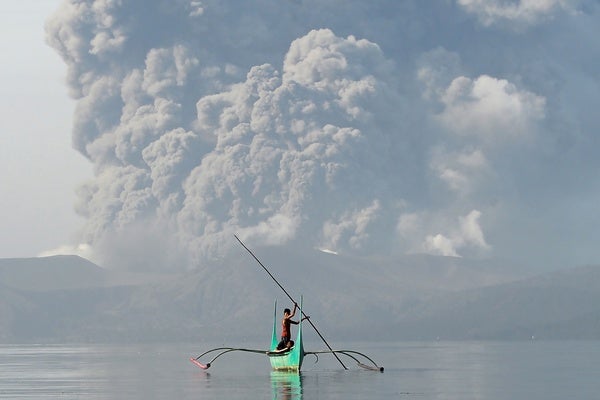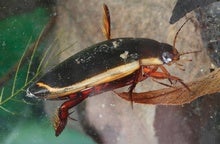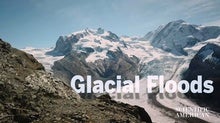 |
| January 15, 2020 |
Dear Reader,
Scientists are closely monitoring activity from the Taal volcano in the Philippines, which began erupting on Sunday and could intensify in the coming days. Our main story describes what seismic signals the researchers are tracking. From our January issue, columnist Naomi Oreskes explains why we shouldn't fact-check judgment calls or recommendations from the scientific community. In stranger news, beetles are viciously attacking tadpoles, which could threaten conservation efforts for endangered amphibians. Also, check out highlights of the climate change discussion from last night's Democratic presidential debate. |
| | Sunya Bhutta, Senior Editor, Audience Engagement
@sunyaaa | |
 |
| |
| |
| |
| |
| |
| Climate Glacial Lake Outburst Floods: A New Climate-Related Threat From Above As the climate changes and glaciers melt, a lesser-known threat lurks in alpine areas: glacial lake outburst floods. These events happen rapidly, releasing huge amounts of water with little or no warning. Unsuspecting communities lying in the flood path can suffer serious losses. Researchers seek better ways to predict these outburst floods and mitigate their danger. Take a hike through the Swiss Alps with glaciologist Fabian Walter to learn about this phenomenon and our ongoing efforts to understand it. |  | By Kelso Harper | | | |
FROM THE STORE
 | | | |
| |
| |
| |
LATEST ISSUES
 |
| |
| Questions? Comments?  | |
| Download the Scientific American App |
| |
| |


















Comments
Post a Comment